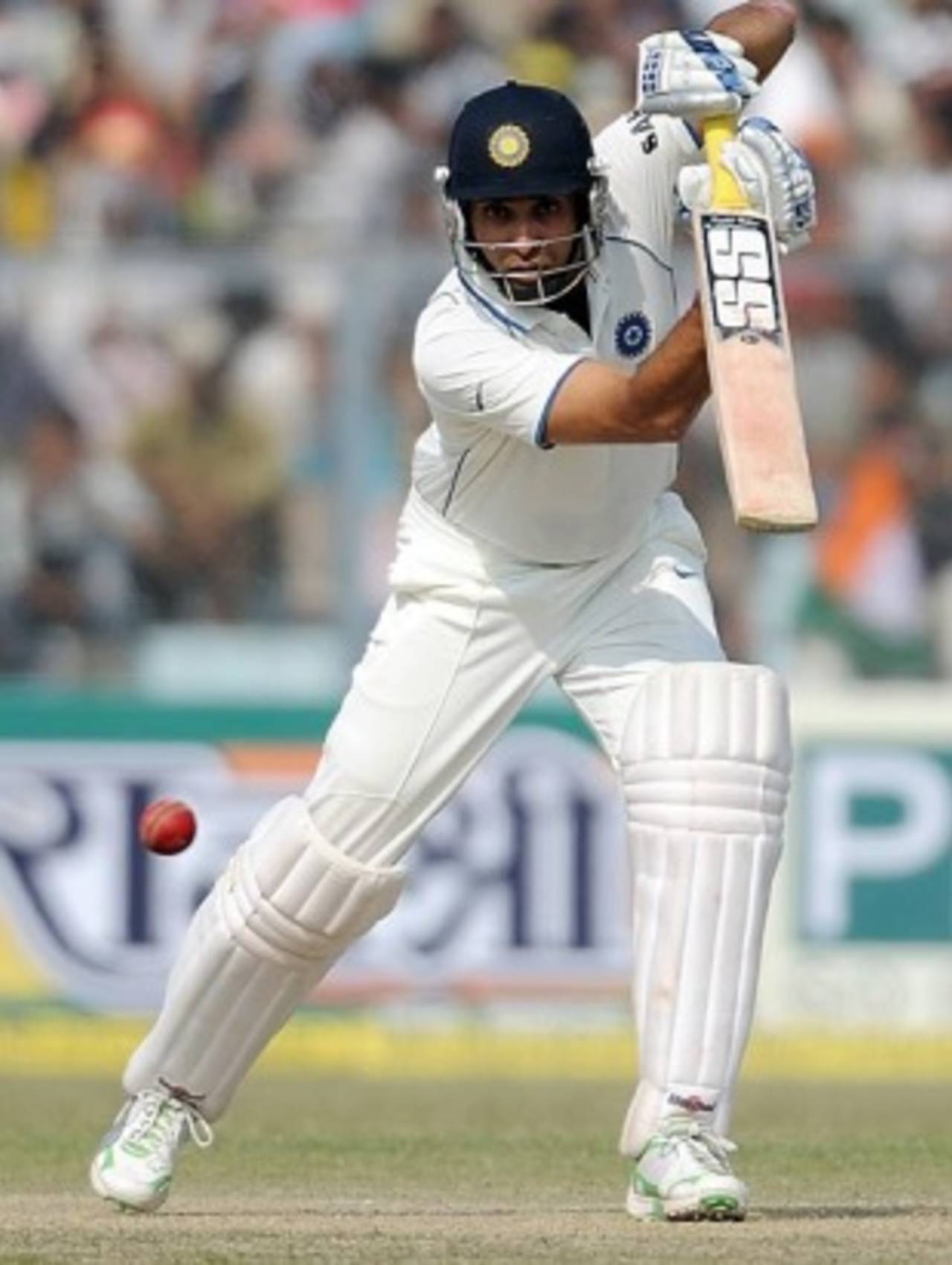Always the artist, never the superstar
VVS Laxman inhabits a world of his own, an era of old-time virtue that we are reminded of all too infrequently these days
Harsha Bhogle
08-Oct-2010

VVS Laxman: his world is dictated by his speed and no one else's • AFP
In a wonderfully charming way the world sometimes pauses, holds back from its relentless march forward, to look at timelessness, at things that defy the situations it seeks to create: a beautiful love story, a travelogue lazily told, a ghazal, a VVS Laxman innings.
When Laxman bats, he is almost dated, sepia tends to tinge the bright, colourful, high-resolution pictures that show him batting. He doesn't steal the impossible single, doesn't come storming back for a second like his life depended on it, doesn't snarl at somebody because he has a couple of seconds and doesn't know what to do with them.
He lets the moment breathe, gently sniffs at the serenity that inevitably surrounds him and takes his stance; his world is dictated by his speed and no one else's. Like Jonathan Livingston Seagull, he seems to search for a higher calm as the other seagulls scrap for anchovies around him.
Not that the scrapping is bad, not that the stolen second run is impure; it is just not him, not his world. When he was slogging in the IPL recently, his bat-speed awry, his body tilted at angles strange for strokeplay, the leg moving out of line to hit over midwicket rather than coming languidly towards the ball to stroke it past cover, he looked like a cheap imitation of the original. It didn't become him. It was an artist trying to enter the world of commerce; a world that pays millions to those who don't bat like him.
And he is understated - another disqualification from the world of commercial endorsements. When he uses the letter "i" it is only because it is in the middle of the word "win". He loves winning, he loves contributing to a win, but he is unlikely to be nudging someone to be in the first row of the photograph.
And so while the big cheques don't always appear, something else does: respect in his dressing room and in that of the opposition; like it does for Naseeruddin Shah, while the big cheques go to Salman Khan. But respect never goes out of fashion; it is something all performers crave, and he has it in abundance.
For a major part of his career he has batted at No. 6. It means the tail is a stone's throw away. It means the boundary riders are out for him, offering him the single to attack the rest. It means he stays not-out more often; once every sixth innings almost, compared to about one in 10 for Tendulkar and one in nine for Dravid. You might argue it boosts his average but the innings rarely go as far as they might have gone. Hence, only 16 centuries. Hence, too, the change in batting style; from a free-stroking player to someone who must guard his wicket and prolong the innings. Number six is a difficult position to bat in if you are a batsman who doesn't bowl because your numbers rarely look as good as those of the men who precede you.
Down in Australia, they think we are daft but we have never bestowed on him the stature we have on Tendulkar, Dravid, Ganguly, and more lately on Sehwag
That is why he has had to walk the selection tightrope far too often for a player of his ability. That is why many believe he has been underrated. Down in Australia they think we are daft, but we have never bestowed on him the stature we have on Tendulkar, Dravid, Ganguly, and more lately Sehwag. And so, every time there was a new kid on the block, the attention shifted towards Laxman. And yet in the last two years (from January 1, 2009, to be precise), he has scored a century every four Tests and averages 80.
Remember, too, that he doesn't play any other form of cricket at this level. It means he has to lift his game enormously, for standards of first class-cricket in India are poor, and quite simply, he wouldn't have played enough. It is an assignment that can be daunting for most and something he will have to live with for the rest of his career. Nobody knows how long that is going to be. He might have the spine but his back is asking too many questions and his knees aren't his best friends.
Many years ago a young Jonty Rhodes was batting with the legendary but ageing Graeme Pollock. After Jonty had called him for one single too many, the great man called him mid-pitch and said: "Young man, the athletics stops now and the cricket begins!"
The athletics may have stopped for VVS Laxman but the cricket continues to be magical. His place in the pantheon is assured.
Harsha Bhogle is a commentator, television presenter and writer. His Twitter feed is here